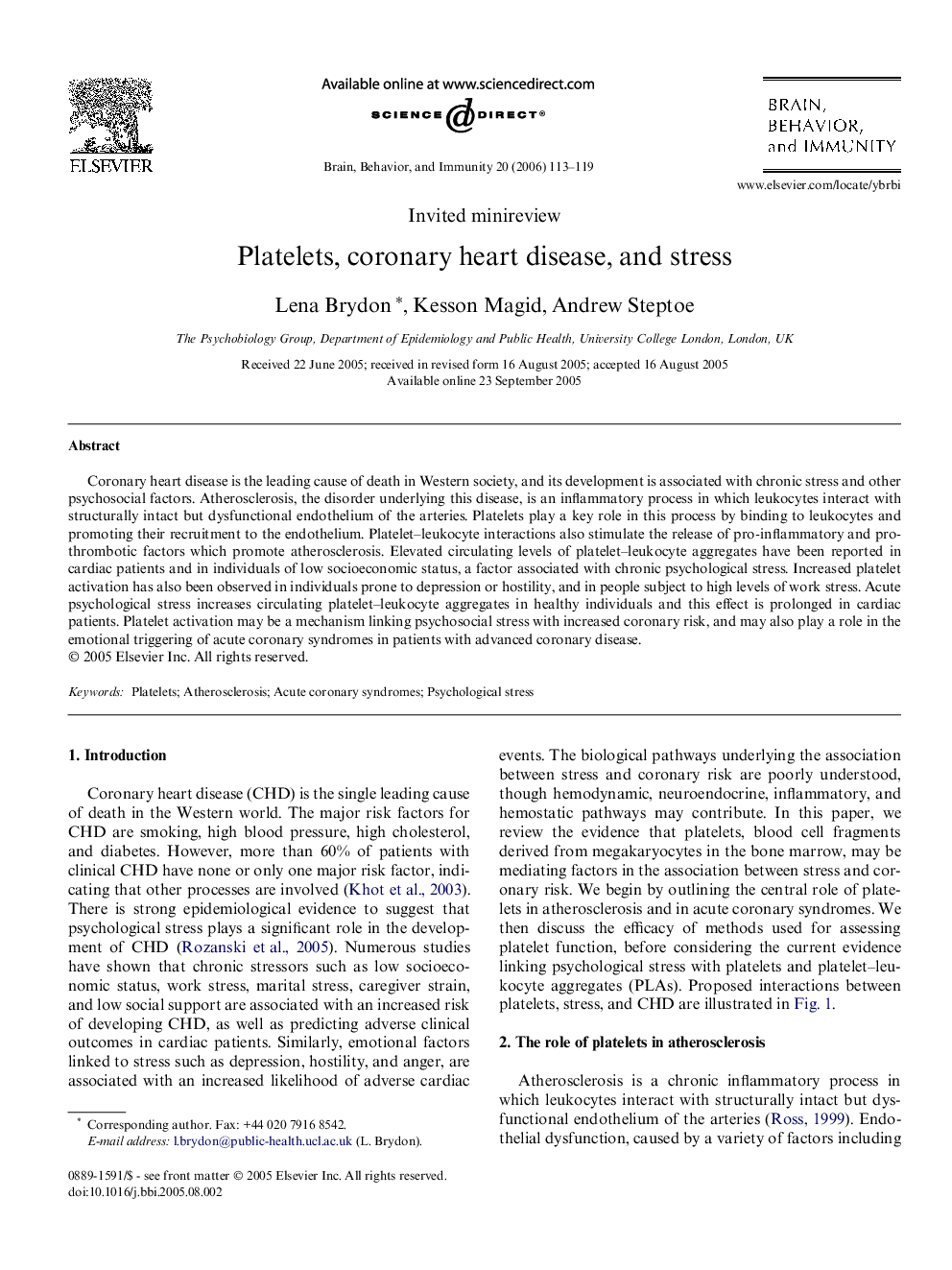| Article ID | Journal | Published Year | Pages | File Type |
|---|---|---|---|---|
| 923478 | Brain, Behavior, and Immunity | 2006 | 7 Pages |
Coronary heart disease is the leading cause of death in Western society, and its development is associated with chronic stress and other psychosocial factors. Atherosclerosis, the disorder underlying this disease, is an inflammatory process in which leukocytes interact with structurally intact but dysfunctional endothelium of the arteries. Platelets play a key role in this process by binding to leukocytes and promoting their recruitment to the endothelium. Platelet–leukocyte interactions also stimulate the release of pro-inflammatory and pro-thrombotic factors which promote atherosclerosis. Elevated circulating levels of platelet–leukocyte aggregates have been reported in cardiac patients and in individuals of low socioeconomic status, a factor associated with chronic psychological stress. Increased platelet activation has also been observed in individuals prone to depression or hostility, and in people subject to high levels of work stress. Acute psychological stress increases circulating platelet–leukocyte aggregates in healthy individuals and this effect is prolonged in cardiac patients. Platelet activation may be a mechanism linking psychosocial stress with increased coronary risk, and may also play a role in the emotional triggering of acute coronary syndromes in patients with advanced coronary disease.
